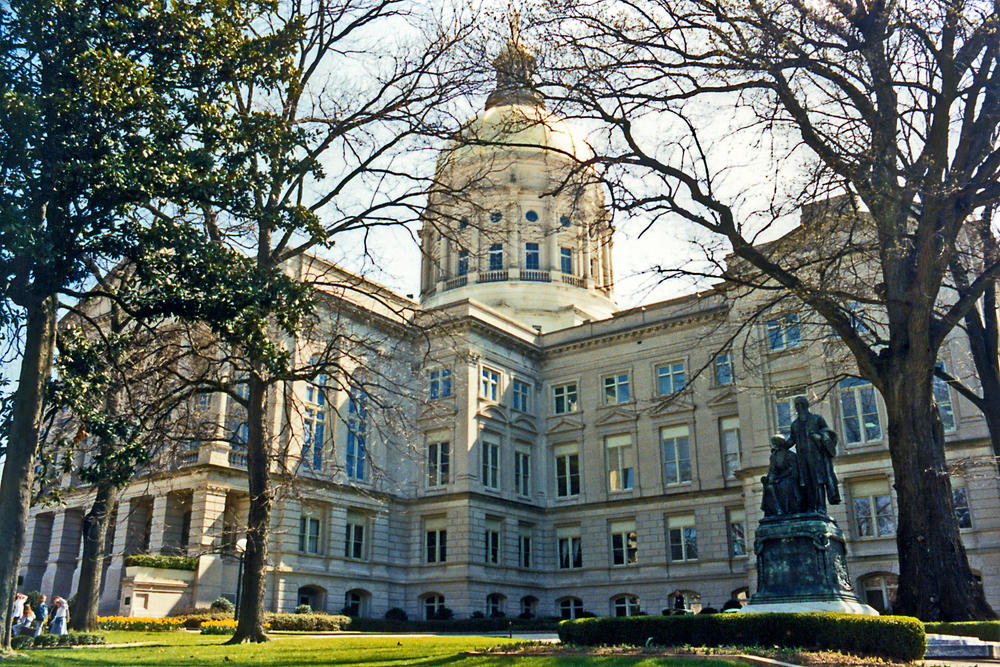Section Branding
Header Content
How Will The Transition To Trump Affect Georgia's Legislature?
Primary Content
Georgia lawmakers find themselves in a kind of limbo these days. They’re back at work this week for the start of the 2017 legislative session, but there’s still more than a week before Inauguration Day.
The incoming Trump administration has promised a flurry of changes to everything from healthcare to immigration, but it’s still not clear whether those changes will happen or what they might look like.
How, as a state lawmaker, do you roll with the change and uncertainty that comes with such a transition?
The days before the start of each new legislative session are usually filled with speculation. Lawmakers, lobbyists, and reporters roam the capitol making bets and predictions.
But even seasoned veterans of the Gold Dome, like Rep. Sharon Cooper (R - Marietta), say the transition to a Trump White House feels different.
“We’re, on the state levels, just sitting back to see what happens,” she said. “It’s a time of uncertainty about that change.”
Cooper first took office in 1997 and has served in the House through two presidential transitions.
She’s waiting to see how Georgia will adapt to big shifts to federal programs like Obamacare, but feels confident the state can handle any changes.
After all, Cooper points out politics are local: the policies that most affect Georgians’ daily lives are made by lawmakers in Atlanta, not in D.C.
“They have all the prestige, and it’s like, ‘Oh, They’re up in Washington and making the decisions,’” Cooper said.
“But we’re the ones that decide how fast you can drive, what happens in your schools. We really make the biggest impact on the lives of Georgians, and that’s left up to us, and I don’t see any big changes coming for that.”
But sitting in Manuel’s Tavern, an Atlanta bar popular with politicos, Rep. Michele Henson (D - Stone Mountain) worries how Georgia will adapt.
“You’re asking me if my uncertainty is because I’m a Democrat with a Republican coming in?” Henson asked. “I didn’t feel that uncertainty with Bush coming in.”
That’s George W. Bush. His transition to the White House was the second Henson saw as a state lawmaker. She first came to the House in 1991.
She’s concerned big changes to the federal budget could send the General Assembly scrambling back into session later this year to adjust its own spending plan.
“It all depends,” Henson said. “Because if suddenly the monies change and we have to come back in and readjust the budget, you could have a special session.”
That’s just one of the many things Henson is unsure about these days. She is not even certain the Trump administration will bring with it the radical changes it has promised.
“I don’t think anyone, even with a crystal ball, can predict that,” Henson said.
But not everyone is worried about an unknown future.
“Uncertainty is not a pejorative. Uncertainty can be good,” said Rep. Earl Ehrhart (R - Powder Springs), who first took office in 1991. “I think there is more uncertainty today in the basic definition of what uncertainty is then there’s been in a long, long time.”
Ehrhart sees opportunity in that uncertainty and says he’ll work at the state level to roll back what he calls years of “federal overreach” by the Obama administration.
“And I’ve got an advocate that sits in the office that’s ovally shaped for a change, so I’m going to make hay while the sun shines,” Ehrhart said.
Rep. Calvin Smyre (D - Columbus) is less rosy about the next few years ahead.
“Right now, I don’t feel good,” he said. “I mean, the House and Senate and presidency [are] held by the opposing party. But at the same time, this is not the time to throw your hands up and say I give up.”
Smyre is the longest serving member of the Georgia Legislature. He first took office in 1974 and has worked under seven different presidents.
For now, he says he is in a holding pattern to see what the Trump administration brings. It’s a strategy he’s used before.
“So, I know what it is to be in power and out of power,” Smyre said. “It doesn’t change the fact that you’re an elected official, it just changes the methodology of how you operate and how you get things done.”
Smyre says the political pendulum never stops swinging, but, eventually, you adapt. As a lawmaker, change and uncertainty are some of the few things you can ever be sure of.


